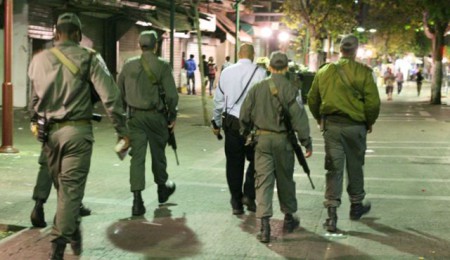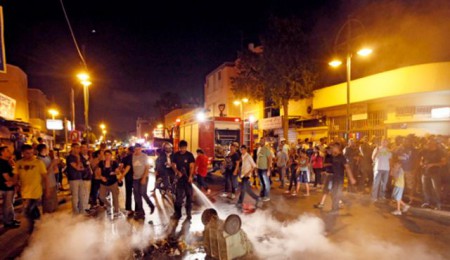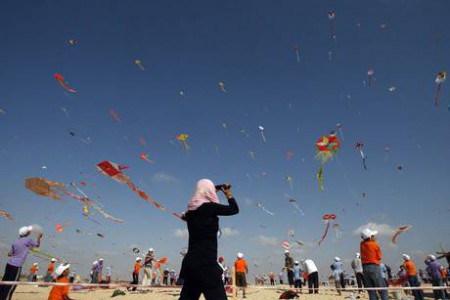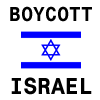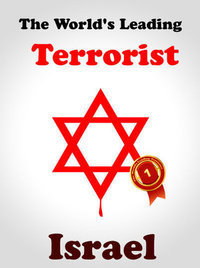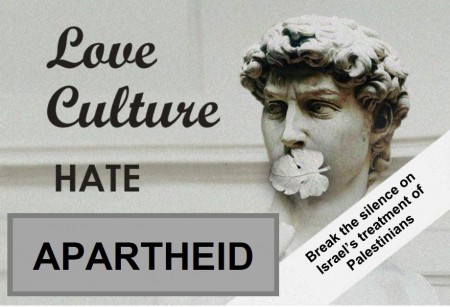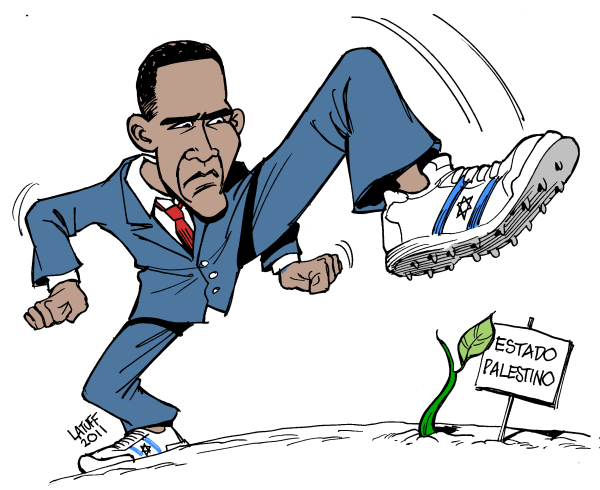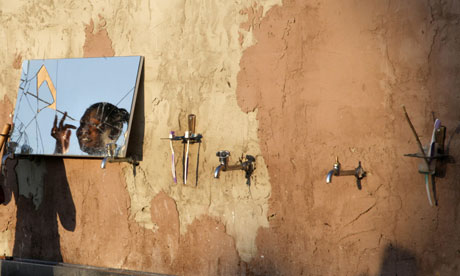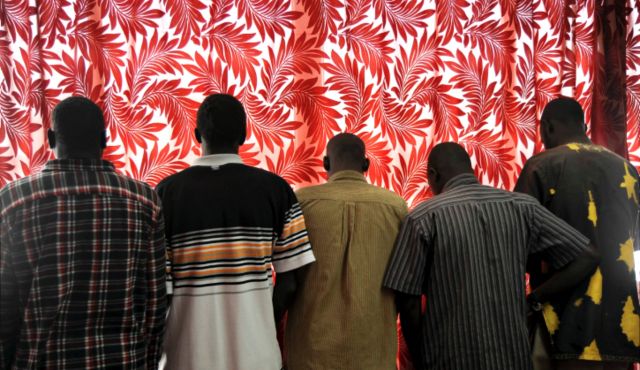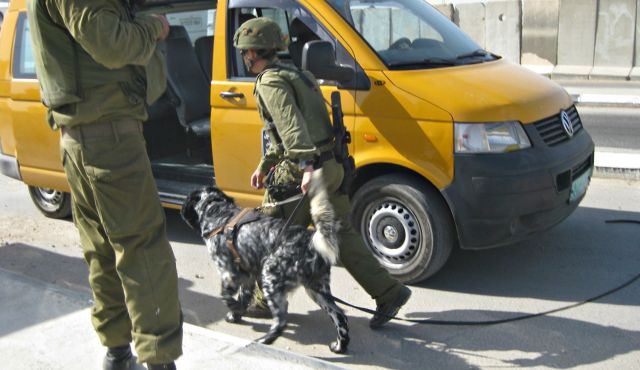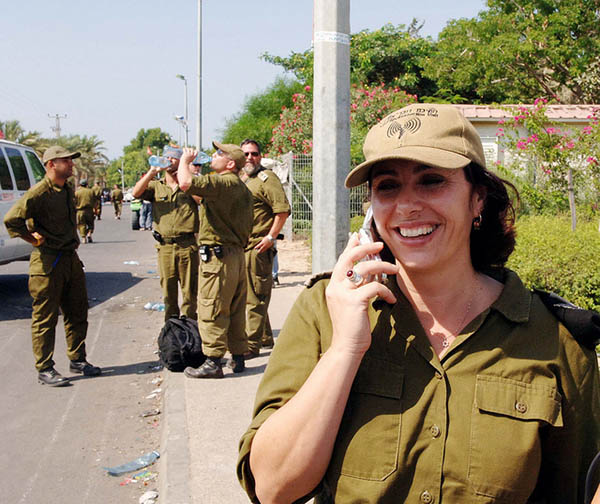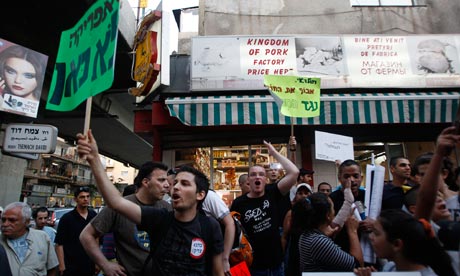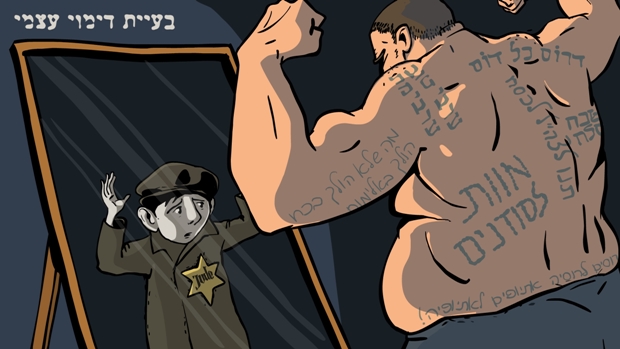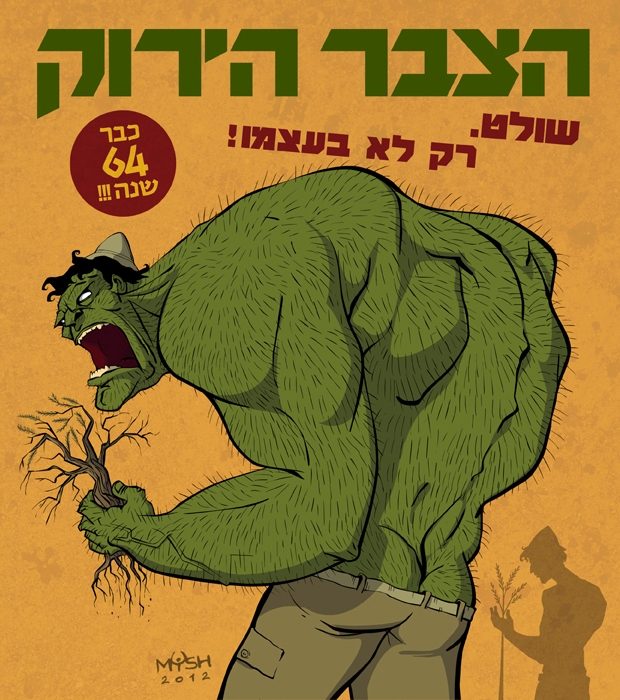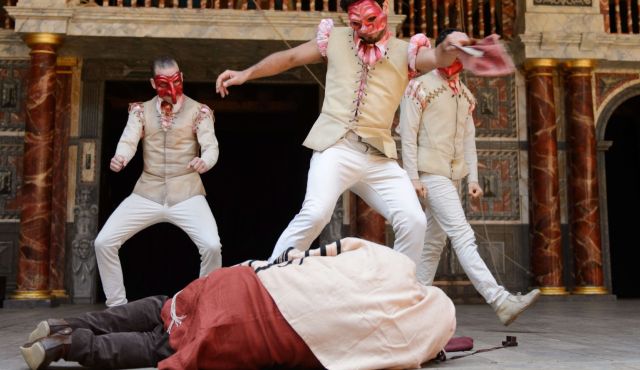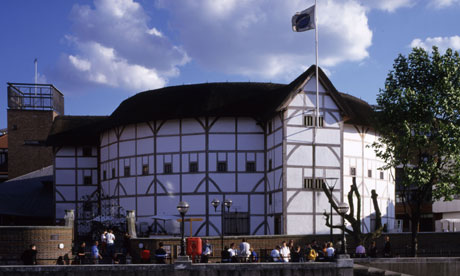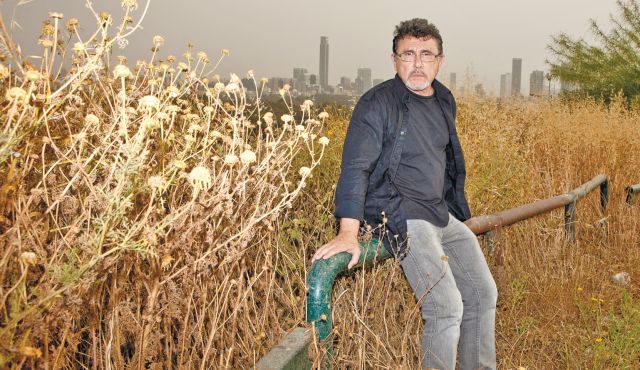EDITOR: Israel racist panic is at its height
With Netanyahu behind mass deportations, and with his ministers each vying to to excel in racist behaviour, Israel is gearing up for the largest migrant expulsion of its kind. As in anything else, on this issue also, Israel will do all to be exceptional. Like in the case of the 45 years of occupation, civil society in the country has failed again to protect the weak and vulnerable from the brutal forces of racist extremism. This at a time that Netanyahu’s close advisers are warning him that Israel’s behaviour in the Occupied Territories will bring about a third Intifada. What a model society… while there is much talk of Jewish suffering during the Holocaust, the daily behaviour towards the other is a model of brutal racism.
Israel to house Ulpana evictees in unauthorized outpost buildings: Haaretz
Deputy AG cites ‘urgent military requirements’ to waive the need for any building permit for the mobile homes to which the occupants of the West Bank homes are slated to move.
By Chaim Levinson Jun.11, 2012
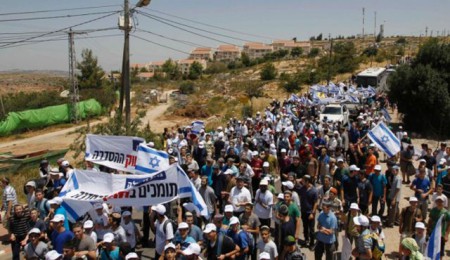
Citing “urgent military requirements,” Deputy Attorney General Mike Balas has waived the need for any building permit for the mobile homes to which the occupants of the Ulpana homes are slated to move by the end of the month.
As previously reported in Haaretz, Attorney General Yehuda Weinstein last week approved a plan to move residents of the five apartment buildings in the outpost of the Beit El settlement slated for demolition because they were built on privately owned Palestinian land to a nearby tract of land that was appropriated by the state in 1970 for military use. The plot is now part of an army base.
By law, a Civil Administration committee must approve any such building, and only after allowing 14 days during which the public can submit objections to the proposal. A committee meeting scheduled for May 31 was canceled, presumably for political reasons.
GOC Central Command Maj. Gen. Nitzan Alon, in consultation with Defense Minister Ehud Barak and Chief of Staff Lt. Gen. Benny Gantz and in coordination with Balas, agreed to allow the earthworks needed to ready the site for the 35 mobile homes to go ahead without the procedures required by law. Tractors leased by the Defense Ministry began work on the site last week.
In allowing the work to start without the necessary zoning approval process, Balas cited a law permitting construction for military purposes without need of permits. The law is intended to allow for the urgent building of military facilities such as earthwork barriers or positions for guarding roads.
Balas cited the “urgent and immediate military need” to put up the civilian accommodations, adding that they must be erected “quickly and urgently in order to preserve public order and security in the area.”
In so doing, Balas has broken a 33-year tradition of not citing military requirements to justify the construction of civilian housing.
In a response, the Justice Ministry said the construction work “complies with international law and with the desire of the authorities to carry out the Supreme Court ruling in a spirit of peace and cooperation.”
The response of the Israel Defense Forces spokesman’s office was similar.
On a related issues, work on a temporary camp for residents of the Migron outpost is proceeding apace. In April the cabinet approved an allocation of NIS 53 million for the construction of two temporary housing sites for evictees from Migron. One of the temporary sites, known as the Yekev compound, is about two kilometers from Migron, alongside the permanent site selected for the Migron settlers. The Yekev site had originally been zoned as a tourist site, but an extraordinary order expediting the site’s rezoning for housing was issued, and the temporary plan is expected to be approved by June 15.
The Mukhmas local council submitted an objection to the plan. If the proposal is not approved by the deadline, the Migron evictees will be moved to the Adam settlement. Massive earthworks are taking place in both sites, around the clock, in order to complete the temporary camp by August 1, the eviction deadline set by the High Court of Justice.
The warning – and the responsibility: Haaretz Editorial
Everything is out in the open for all to see. One merely has to understand what is happening, and immediately work toward diplomatic progress and stop giving in to the settlers.
Jun.11, 2012
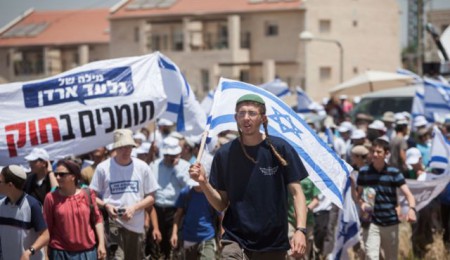
Prime Minister Benjamin Netanyahu’s problematic attitude toward the National Security Council was at the center of the complaints voiced against him by former NSC head Uzi Arad. This attitude was also discussed in a State Comptroller’s Report that is due to be released shortly.
Perhaps that’s the reason the current NSC head, Yaakov Amidror, took the trouble to invite renowned experts on Middle East affairs to his meetings with Netanyahu, so they could share their information and insights. This is a welcome initiative, a genuine opportunity to make it clear to Netanyahu, using sources outside the regular government channels, how his government’s policies and the regional situation are intertwined.
These scholars, whose joint expertise encompasses the Palestinians, the Arab states, Turkey and Iran, were asked to analyze the regional phenomenon of the past year known as the Arab Spring, but they ended up warning Netanyahu about what might turn into a hot Israeli summer.
According to the accepted count, over the past quarter century, since 1987, there have been two intifadas, the first a popular uprising, and the second, which started in September 2000, a combination of popular uprising and organized terror. The time span between the start of the first and second intifadas is similar to the length of time between the start of the second intifada and today. There are also signs pointing to similarities between the three periods, such as improvised terror attacks stemming from religious and national distress. It could be that a third intifada will erupt shortly.
According to these experts, what could ignite such a conflagration, literally, might be the torching of a large and important mosque, either in the West Bank or Israel proper, by right-wing “price tag” activists responding to either a terror attack or what they would consider undue government capitulation to the Palestinians.
Another catalyst for an explosion could be the massive housing construction that Netanyahu announced last week, which came as compensation to the settler community for his obeying of the High Court of Justice’s order to evacuate several buildings in Beit El’s Givat Ulpana neighborhood. Violent confrontations are likely to be caused either by a declared policy that favors the settlers, or by the weakened position of the Palestinian Authority’s moderate leadership, which may not be able to – and may not even want to – stifle the unrest.
These Middle East experts are not relying on classified information. Everything is out in the open for all to see. One merely has to understand what is happening, and immediately work toward diplomatic progress and stop giving in to the settlers.
Netanyahu has been warned. Now he bears the responsibility.
Stuxnet: the worm that turned Obama into a hypocrite?: Guardian
The president who made a stirring declaration about internet freedom authorised a wave of cyber-attacks on Iran, it has been revealed
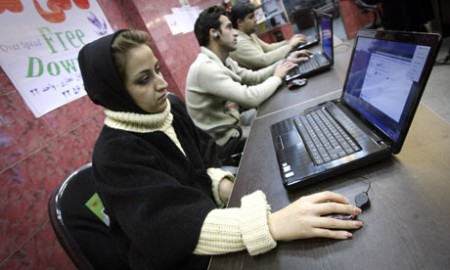
‘”Great nations”, said General (and President) de Gaulle, “do not have friends; they merely have interests”. Substitute “ethics” for “friends” and you’d be closer to the mark. In May 2011, the Obama administration published an admirable document setting out the US’s international strategy for cyberspace. It was subtitled “Prosperity, Security, and Openness in a Networked World”, and contained a foreword signed by the president himself.
“Today,” wrote Obama, “as nations and people harness the networks that are all around us, we have a choice. We can either work together to realise their potential for greater prosperity and security, or we can succumb to narrow interests and undue fears that limit progress. Cybersecurity is not an end unto itself; it is instead an obligation that our governments and societies must take on willingly, to ensure that innovation continues to flourish, drive markets, and improve lives.”
Stirring stuff, eh? Obama goes on. “The digital world is no longer the province of a small elite. It is a place where the norms of responsible, just, and peaceful conduct among states and peoples have begun to take hold. It is one of the finest examples of a community self-organising, as civil society, academia, the private sector, and governments work together democratically to ensure its effective management. Most important of all, this space continues to grow, develop, and promote prosperity, security, and openness as it has since its invention. This is what sets the internet apart in the international environment, and why it is so important to protect.”
I couldn’t have put it better myself. But there is a small problem. At the time when he signed that stirring declaration, Obama knew something that the rest of us didn’t – namely that the Stuxnet worm, which caused such havoc at the heart of Iran’s uranium-enrichment process had been written, under his authorisation, by programmers in the US National Security Agency (with some assistance from software engineers working for the Israeli military).
When Stuxnet was first discovered in 2010, it attracted a great deal of attention for several reasons. For one thing it was so remarkably sophisticated and complex that its creation would have required a large software team. This led many of us to suppose that it must be the work of the security services of a major industrial country: it was hard to imagine run-of-the-mill malware authors going to all that trouble when they could be harvesting stolen credit-card numbers without getting out of bed. But the most intriguing thing about Stuxnet was the way it targeted a very specific piece of equipment: the Siemens Simatic programmable logic controller. It is commonplace in industrial operations everywhere – oil refineries, chemical plants, water-treatment facilities and so on. And it is also the device that controlled the centrifuges of the Iranian nuclear programme. Stuxnet could – and did – instruct the Siemens controller to cause the centrifuges to accelerate until they disintegrated.
All this pointed toward one conclusion – that Stuxnet must have been the creation of either the US or Israel. But no one knew for sure. Now, thanks to some fine investigative reporting by David Sanger, we do. The Stuxnet project – codenamed “Olympic Games” – was actually started by the Bush administration and accelerated by Obama in his first months in office. What’s more, Sanger claims that Obama took a detailed, personal interest in the progress of the Stuxnet attack and that there were some agonised discussions in the White House when it was realised that the worm, instead of remaining inside the Natanz nuclear plant, had escaped into the wild, as it were. An error in the code led it to infect an engineer’s computer. When he left the plant and hooked up his laptop elsewhere the software didn’t recognise that its environment had changed. And then the cat was out of the bag – which is how we first got to hear of it.
Sanger’s revelations raise some thorny issues, of which two immediately spring to mind. One: does Obama’s duplicity – publicly espousing the internet as a space that is unpolluted by cyberwar and cyberespionage while covertly sponsoring a cyberweapon like Stuxnet – fatally undermine America’s credibility as a defender of internet freedoms?
Or should it be seen as a defensible exercise in realpolitik – on the grounds that using software to sabotage Iran’s nuclear ambitions would cause less collateral damage than an Israeli airstrike? And two: given that (a) software like Stuxnet could bring our entire industrial infrastructure to a halt, and (b) the likelihood that any piece of malware will escape into the wild, should we treat cyberweapons like biological weapons and ban their use entirely? Discuss, as they say in politics exams.
Why has there been no ‘Palestinian spring’? One word: Oslo: Guardian
The 1993 accords turned the Palestinian struggle from one of resisting Israeli colonialism into occupation management
Ben White
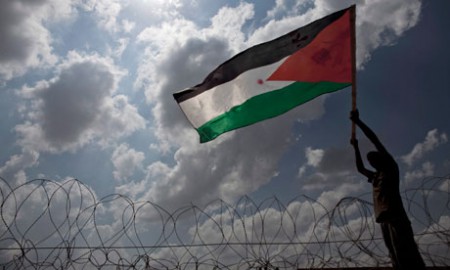
Ever since the uprisings in Tunisia and Egypt began a regional earthquake 18 months ago, commentators have wondered about the absence of a “Palestinian spring”. Attempting to explain this is useful, since it also helps to shed light on key problems with the now-comatose peace process.
To some extent, the question “Why no Palestinian spring?” can be answered with one word: Oslo. The Oslo accords, signed in 1993, established a paradigm where the Palestinian struggle for return and decolonisation was turned into a facade of sovereignty, piecemeal concessions and occupation management.
That, in turn, has shaped the behaviour and direction of key political actors in the occupied territories. The Palestinian Authority (PA), for example, marked the shift from a revolutionary focus to that of “interim” autonomy – which in due course became an institutionalised entity maintained for its own sake. Not only unrepresentative of most Palestinians worldwide, the PA leadership is disconnected even from those over whom it governs; VIP passes and diplomatic letter-exchanges are a stark contrast with the needs of prisoners’ families or expelled farmers.
Another consequence of Oslo has been the “professionalisation” of NGOs, and the huge role these organisations have had in encouraging certain types of Palestinian agency while marginalising or delegitimising others. As was pointed out well over a decade ago, “the NGOs’ lack of a mass base and focus on development and governance issues make them incapable of organising at the mass level”. Their professionalisation has created a marketplace that competes for funding (influenced by donors’ priorities) and has meant “the exclusion of a wider public that participates in determining priorities and national agendas”.
The PA and NGOs (both international and local) have contributed to the emergence of a “broad swathe of public opinion and material interests linked to maintaining the status quo, either fearful of what change may bring or simply unbelieving in the possibility of positive change”. These include merchants, those dependent on the PA for their salaries and those who have permits to work for the settlements and/or inside Israel. This large group constitutes “a solid constituency for not altering the status quo”.
There are other problems, too. Palestinians are confronted by physical obstacles to unified resistance and strategising, in the form of Israel’s colonies, checkpoints, road networks and the wall. There is also the bureaucratic regime of “permits” and separation, driving a wedge between Gaza and the West Bank, East Jerusalem and the West Bank, etc.
The physical fragmentation goes wider, of course, with Palestinians facing different realities – and experiencing a variety of legal regimes – in places as diverse as the Negev, Silwan, the Jordan Valley and Lebanese refugee camps. These create divergent sets of immediate priorities, which make it hard to create a campaign beyond the local.
An additional factor in the West Bank is the PA’s intolerant approach to dissent and public protest. The rulers in Ramallah are not only an obstacle to a “Palestinian spring” – for some, they are the target. Hamas in Gaza, too, has not been immune to the dangers of treating power as an end in itself.
In Amnesty International’s most recent global human rights report, both the PA and Hamas are criticised for mistreating detainees and restricting freedom of expression. Low tolerance for dissent in the media or in public demonstrations has been one example of the human rights violations that the Palestinian Centre for Human Rights says are “motivated by the ongoing state of political division, apparently as mutual reactions by each side towards the other one”.
Add to this the lack of a political programme representing Palestinian national aspirations, as well as the leadership vacuum brought about by the Fatah-Hamas conflict, and it’s no wonder that mobilisation is a tough challenge.
But that’s not to say it isn’t happening. Palestinians are mobilised but their mobilisation is decentralised and disparate – the energy is there but not in a way that may be immediately apparent. Multiple strands of activism are at play, some of which are aimed at directly, or indirectly, challenging the obstacles to resisting Israeli colonialism.
Until now, mass Palestinian action in the occupied territories is inhibited by a number of factors. But that’s not say things are standing still – and as we know from both Palestinian history and more recent events in the region, things can change in an instant.
